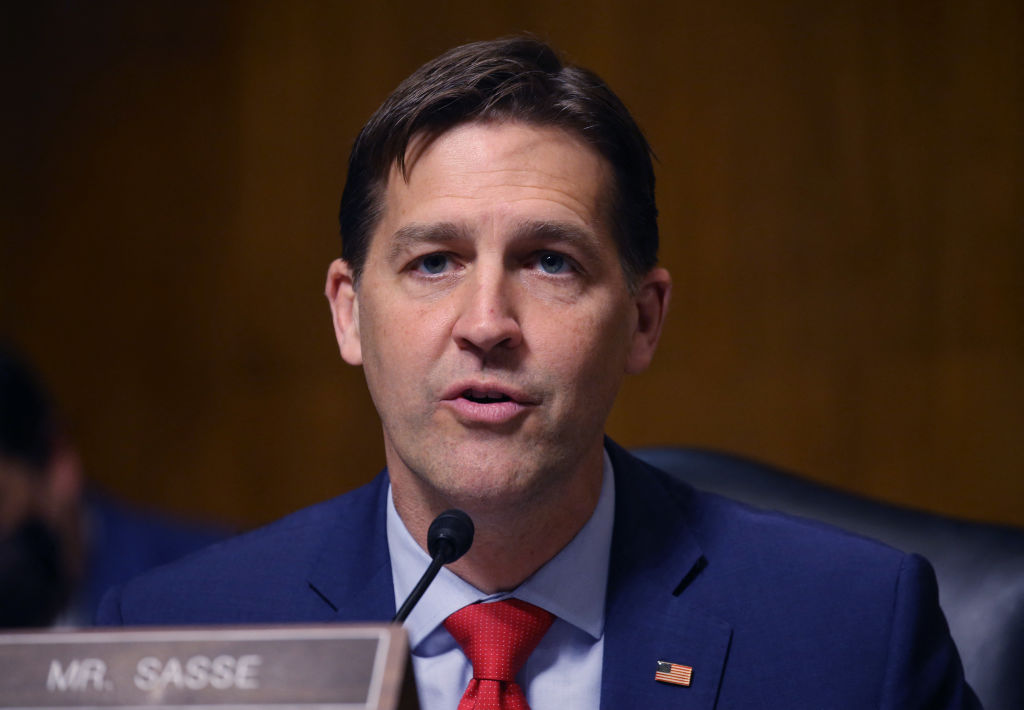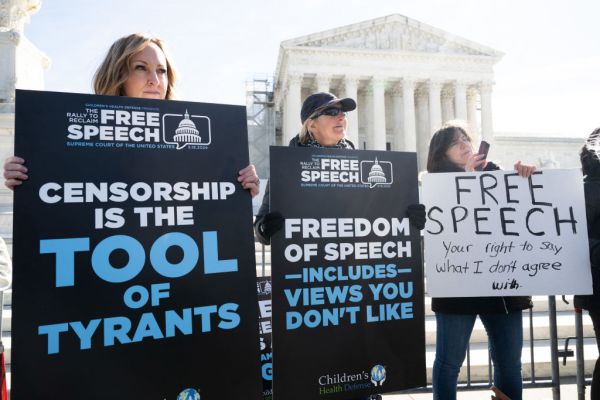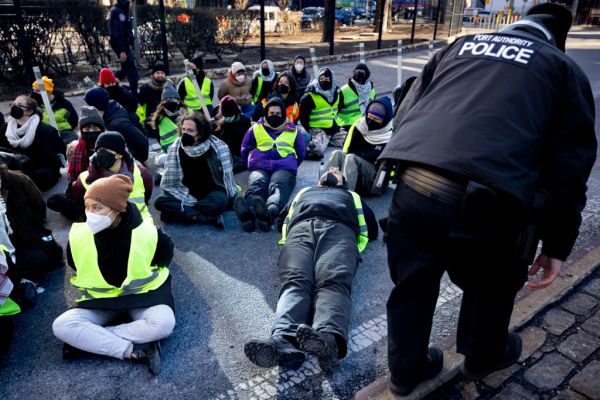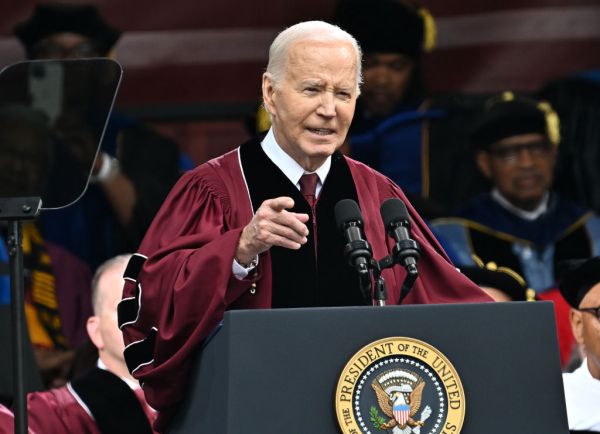To understand what it means to live peacefully despite great differences, let’s talk about the miracle of Franklin Road. For those who aren’t familiar with Middle Tennessee, Franklin Road is the north-south artery that runs through the heart of Franklin, Brentwood, and Nashville. Drive down it and you’ll pass beautiful homes, high-end shopping centers, and churches—lots and lots of churches, from virtually every significant strand of historic Christianity: evangelical, mainline, Catholic, and Orthodox.
Why is this a miracle? For most of Christian history (and a substantial part of American history), the mixing of these exact Christian sects produced intense conflict, including (especially in Europe) devastating wars. The Wars of Religion are centuries old, but the Catholic/Protestant “Troubles” in Ireland raged until almost the turn of the century. Today, in Eastern Europe, Russia has launched its own religious war.
Yet here in America, we enjoy world-historic religious peace and tolerance, both within Christianity and among different religions. We’re not perfect, but rare indeed is the person who dreads working with or living next to a person of a different faith. And, critically, this tolerance happened without watering down our respective religions. True believers still believe.
Devout Christians, Jews, Muslims, Hindus, Buddhists, and outspoken atheists live, work, and play side-by-side without surrendering their distinctive beliefs. We disagree on matters of monumental significance, yet we now take for granted the existence of religious diversity. Not only that, there’s an entire legal and political movement dedicated to defending religious liberty and free expression for every American of every faith (and those who possess no faith at all.)
This, readers, is—by historic standards—a miraculous development. It’s also a model for understanding how to react to the culture war, where the fights aren’t so much between Catholic and Protestant as between religious and secular, or between those who (regardless of their faith status) possess distinctly different moral norms.
I’m writing about this because of two recent protests—one that was loud and disruptive, and one that was quiet and respectful. The first occurred against Sen. Ben Sasse at the University of Florida, and the second was aimed at me at Duke University. At Florida, students protested the university’s decision to name Sasse its sole finalist for president. At Duke, students objected to my status as a visiting professor.
Both were rooted in a similar complaint—that our traditional Christian sexual ethics were unacceptable in the campus community. Sasse was called a “bigot.” I was accused of engaging in “vicious” anti-LGBT rhetoric for signing a statement of Christian sexual morality called the Nashville Statement. The students at Florida loudly disrupted a Sasse event. The students at Duke simply wore LGBT colors in silent protest and asked polite but firm questions. (In fact, I deeply admired the way they engaged; they modeled respectful discourse.)
My theological tradition has a rather specific view of the role of human sexuality. It’s a tangible expression of the lifelong commitment and union of a man and woman in marriage. It’s a radical, countercultural call on a person’s life among a host of other countercultural calls, such as loving our enemies and blessing those who persecute us.
But here are my questions: Is a disagreement over something as paramount as sexual morality more serious than a disagreement over, say, the nature and divinity of Jesus Christ? Or the doctrines of salvation? Or is the real question not whether we disagree but how we disagree and still live together as friends and neighbors in a pluralistic republic?
I’ll share a story I’ve told before. Years ago I interviewed to teach at Cornell Law School. The department chair looked at my CV—which clearly identified my Christian conservative professional affiliations—and asked me, “How can you teach gay students?”
The question was based on my religion and therefore legally suspect, but I could tell she was asking out of genuine concern and in good faith, so I answered. I told her I believed that every single student was created in the image of God and should be treated with dignity and respect. I would treat every student equally, regardless of race, sex, or sexual orientation.
She accepted my answer, and I got the job.
Sen. Sasse gave a similar answer at Florida. The first question during a Q&A session with professors was about his opposition to the Supreme Court’s Obergefell decision, which recognized a constitutional right to gay marriage. “I believe in the universal dignity and the immeasurable worth of every single person, all the tens of millions of Floridians, all … 56,000 students here, all 30,000 faculty and staff … we need to create a community of inclusion and respect and trust where people feel heard and appreciated and cherished,” he said.
I know Ben Sasse. My wife worked with him on a book project. He’s a good man. While I can understand students and professors objecting to the process (he’s the sole candidate for the job) and objecting to his politics (I don’t agree with all his positions), claims of bigotry are wrong. Disagreement isn’t bigotry, and one test of a good leader isn’t whether he agrees with you, but rather whether he recognizes your fundamental dignity, protects your liberty, and upholds a commitment to equal protection of the law. And that’s exactly what Sasse said he’d do.
I hope the professors and students accept Sasse’s answer, and I hope he gets the job.
The true challenge to American pluralism isn’t our differences. The true challenge is when our differences trigger a degree of animosity that causes us to breach the American social compact, to treat members of different groups or opposing factions as inherently threatening, as less deserving of the blessings of American liberty.
I know Christians can be anti-gay bigots. I’ve seen it with my own eyes. The “groomer” smear that circulates in right-wing spaces online is a new version of an old libel. Christians—even the most theologically conservative of Christians—should stand against such smears. We should do more: We should affirmatively defend the civil liberties of our LGBT friends and neighbors.
This isn’t “watering down” Christianity. It’s living out a faith that recognizes the fundamental dignity and equal worth of every single human being. Our nation formally recognizes that fundamental dignity and equal worth by extending the reach of liberty and equality to every person in the republic.
But I also know secular Americans can be anti-Christian bigots. I’ve seen it with my own eyes. Indeed, the presumption that theologically conservative Christians are bigots is itself a form of bigotry.
Just as I’ve defended LGBT Americans from the loss of civil liberties at the hands of Christian conservatives, I’ve defended Christian conservatives from the loss of civil liberties at the hands of secular progressives. I’ve seen LGBT activists smear Christians as hateful and bigoted merely for believing in traditional sexual ethics. During my legal career I filed multiple suits against weaponized secularism, including cases that would shock your conscience.
Protecting Christianity isn’t watering down a secular progressive commitment to tolerance. It’s what tolerance looks like. It’s what tolerance demands. Any conception of tolerance that rejects disagreement isn’t tolerance at all—it’s repression.
My friend, Biola University President Barry Corey, speaks of approaching the public square with a “firm center” and “soft edges.” The “firm center” is the core of your beliefs. It’s what defines us. The “soft edge” is the way in which we approach others, with an open heart and an open mind.
In a legal context, I’ve often shared the view that we should “fight for the rights of others that we’d like to exercise ourselves.” This conception recognizes both the preciousness of our own liberties and the symbiotic relationship we enjoy with even our dissenting fellow citizens. When their First Amendment rights expand, so do ours. When their rights shrink, ours diminish as well.
I’m not naive. When people have deep disagreements about profound issues, there is bound to be friction. And anger. Some Duke students who confronted me did so with tears in their eyes. Pluralism isn’t utopianism. It recognizes that we’ll fight and argue. It recognizes the permanence of religious and ideological disagreement. There’s nothing easy about pluralism.
But pluralism also has its great virtues. It is the best way we’ve yet conceived to preserve a continent-sized, multi-ethnic, multi-faith democracy. It’s perhaps the only feasible path for preserving a vision that George Washington mentioned almost 50 times in his writing, a vision he outlined in his famous 1790 letter to the Hebrew congregation of Newport, Rhode Island— a nation in which “every one shall sit in safety under his own vine and fig tree, and there shall be none to make him afraid.”
One last thing …
Sunday’s newsletter, on Putin’s violent, failing Christian nationalism, angered quite a few folks online. A number simply rejected that Putin had religious motivations for the war. They rejected that it was anything more than Soviet-style expansionism. But we need merely listen to Putin to understand his argument. We need merely listen to his own leaders and commanders. This, readers, is what holy war looks like:








